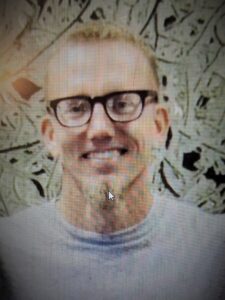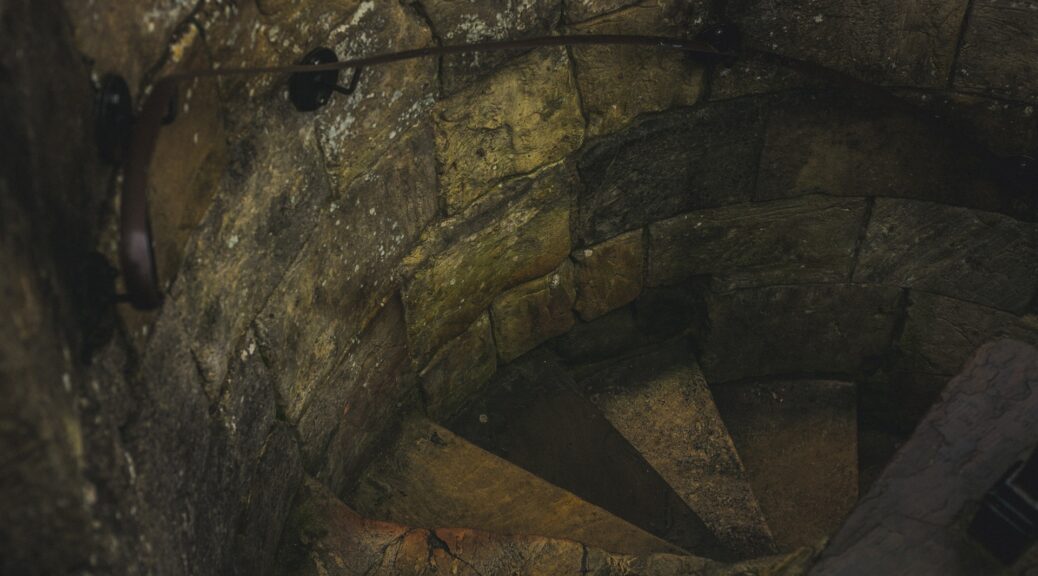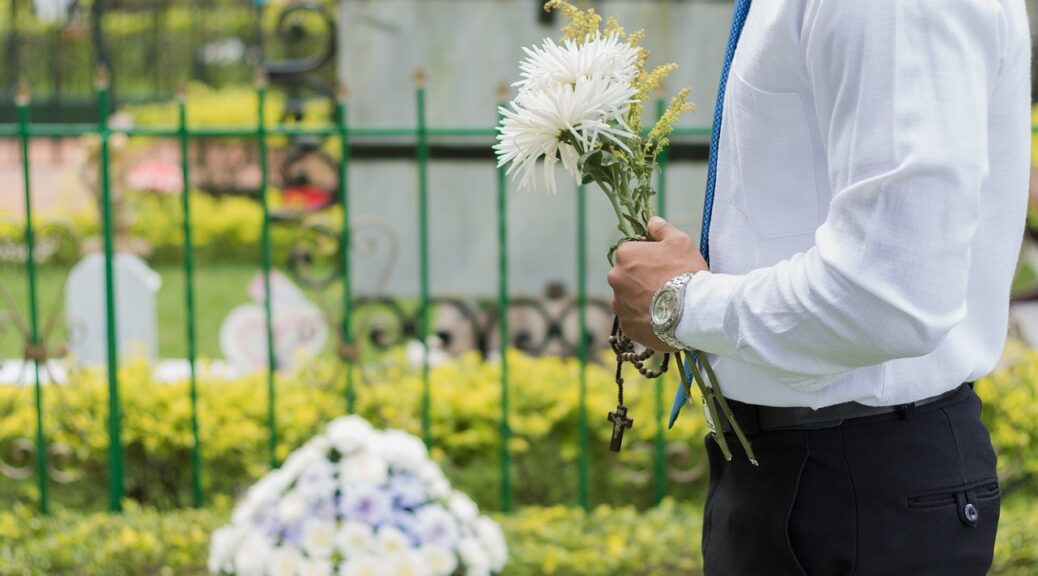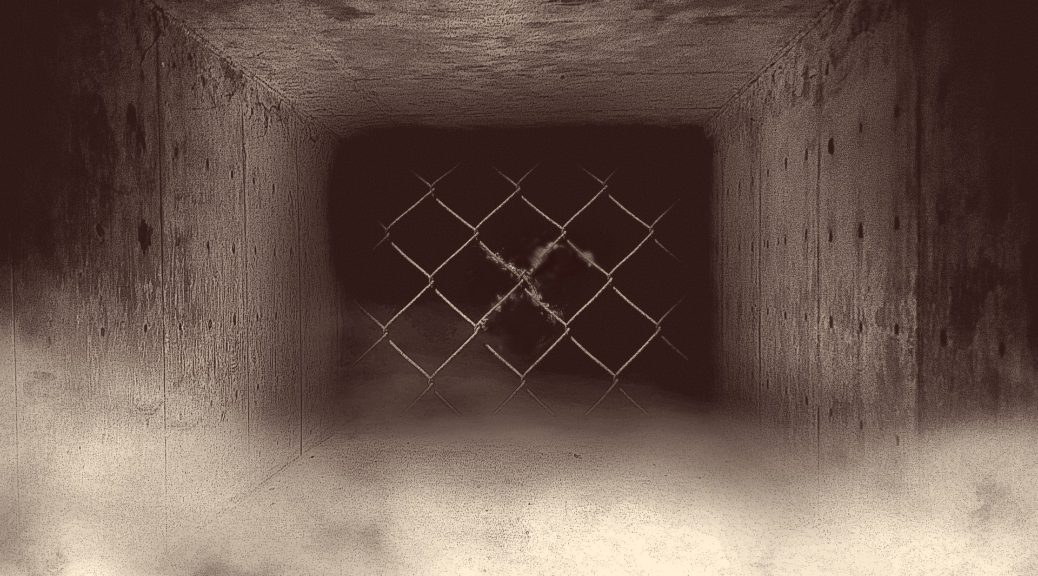It was never supposed to go as far as it did, but things get away from you sometimes – when you’ve just turned nine; when you don’t know any better. One minute you’re pranking your cousin – the next, you’re faking a traumatic brain injury to escape your mother’s infernal wrath. Just another day in the life, right?
It all started innocently enough. Aunt Kim and her daughter, my cousin Rachel, came to visit my mother and me at grandma’s house. Mom was between boyfriends, and we were staying there, once again, for ‘only a short time’. We just needed a little help while Mom saved up enough to get us a place of our own again, no more than a couple weeks, month tops.
We’d had many places of our own before, mom and me, but grandma’s house was way better than any of them. Grandma’s house was like a bear hug. Her fridge always had real food in it, like lunchmeat and cheese, and because grandma knew I liked ‘em, she kept lots of carrots. The only things mom and me always had in our fridge were a bottle of ketchup, about a half dozen grapefruits for whenever she was doing that diet again, and lined up like soldiers in formation on the rest of the shelves were as many sixteen-ounce cans of mom’s boyfriend-at-the-time’s favorite brand of beer. In the crisper, for some reason, we usually had an old head of lettuce or rubbery celery stalks rolling around, lending a slight odor of decay to waft about the kitchen and, depressingly, the entire apartment. Grandma’s house always smelled good. She put special powder on the carpet when she vacuumed, making it smell flowery and fresh whenever I’d lay on the floor watching cartoons. Our places rarely ever had carpet, and if they did, it never smelled flower-fresh, typically so dingy and stained you’d barely want to stand on it, let alone lay down.
Mom and me had an unspoken rule, whether at our place or grandma’s – the house would be kept quiet, which really just meant I had to be quiet at all times while inside. This rule didn’t apply to mom, who was a very loud, boisterous person herself. While watching TV in the basement, I could hear her all the way upstairs on the phone with Jo-Jo, her best friend, yapping about one thing or another, usually something boyfriend-at-the-time was doing that he shouldn’t or something those assholes at work were doing that they shouldn’t. I was cool, though, with our unspoken be-quiet rule. I enjoyed quiet activities anyway – drawing, watching cartoons, volume super low of course, building ridiculously elaborate Lego spaceships. I could go days in the house and barely say a word. One problem with the be-quiet rule, however, was that I couldn’t have friends in the house – too noisy. So we, mom and me, had a second unspoken rule. As long as there were no active tornadoes or biblical floods in the area, if I had any company whatsoever, said company and I must go outside and play.
Which is why and how Rachel and I found ourselves outside that particularly squinty-bright, sticky-hot summer day. We didn’t have many options since she hadn’t brought her bicycle, and I wasn’t about to bring my precious Legos outside where God only knows what might happen to them. They would likely get dirty or, more likely, Rachel might chew on one of them or, even more likely, start throwing them at me and lose some. I couldn’t take the risk, so instead, we went with a classic game of tag.
Now, Rachel was almost three years younger than me, and you might be tempted to think such an age gap would’ve made a difference. I’m embarrassed to admit, that was not the case. My cousin approached life with the focused seriousness found only in the very young or the very psychotic. She was an adorable, yet ferocious, little animal – a scabbed-kneed, pigtailed Tasmanian devil. She was absolutely ruthless in pursuit, and being a giggler by nature, her laughter would build with her excitement until it became maniacal – terrifying. The hysteria of her laugh was actually how I gauged when to let her catch me so her little head wouldn’t explode. I’m telling you, she could’ve gone pro.
Fortunately, I had plenty of room to run. Grandma’s backyard was a huge grassy expanse fenced in on three sides by the neighbor’s chain-links. There wasn’t much to it though – a large rose bush by the back porch, a sizable woodpile against one corner of the house, and off to the side, a clothesline with the poles offset and leaning opposite each other, giving the lines a pronounced twist. I used these as obstacles during evasive maneuvers, weaving figure-eight style between the clothesline poles, cutting close corners around the bush and woodpile – anything to get away from the holy terror on my tail. Occasionally, whenever I managed to put some decent space between us, I’d loop around and through the front yard, which was obstacle-free except for a single white elm in the center.
We’d been playing only a short time when, on one of my front yard loops, my toe caught one of the elm’s many exposed roots, and I stumbled. On silly instinct, I decided to go down in dramatic fashion, rolling and flailing about before coming to rest flat on my back in what I thought was the perfect dead man’s pose – arms out wide, one leg bent, head rolled to the side. I considered hanging my tongue out, but thought – too much. It would be fun to mess with Rachel a little bit, and I needed a breathing break anyway – two birds with one fall kind of thing. I heard the laughing stampede fast approaching and paid for her arrival when she plunged, knees first, into my ribcage. Being all too familiar with my antics, Rachel immediately began investigating my sudden and apparent death.
Leaning over me, peeling my eyes open with stubby fingers that, somehow, always smelled like dirt, “Uh, hello!” she giggled. “Time to wake up!”
I rolled my eyes back and kept my face completely relaxed, no flinching.
Next came the obligatory tickle test, but I was ready and had steeled myself against all attacks on my ribs and stomach. No movement. Solid rock.
The way the game goes, at just the right moment you explode to life with a shout that makes the other person jump. It’s funny; you both share a laugh – good times. We had played this scene many times before, Rachel and I, so in what I thought a brilliant play off expectations, I delayed my resurrection longer than usual.
She gripped my hand, shaking my rubbery arm up and down.
“I know you’re not dead, you know. Get up!” Impatience crept into her voice.
A hard push, she grabbed my head, rolling it back and forth. “Helloooooo!” This was going to be great. I remained still and, fighting laughter, waited just a moment longer.
“Geoff! Come on. This isn’t funny anymore!” Her voice broke. Hmm, what’s that about, I wondered, as she sprang up and shot inside the house.
Oh well, I thought, she’s a little spooked is all. Some people can’t take a joke. No big deal, she’d be fine once I went in and explained everything. Which I was just about to do when I heard mom call my name from inside the house – my full name – which everybody knows is bad. I should have gotten up immediately and faced my mother’s wrath. It wouldn’t have been as bad as I imagined, would it? This, looking back, was that moment when, after a thing happens, you clearly see every element involved and know exactly where and when you could have done or said something – anything – that would’ve changed everything. But, of course, I didn’t do the exact something, or anything, that would’ve changed everything. Instead, I panicked and continued laying there. Playing dead. Wishing I was.
I heard mom’s footsteps thud to the front door and stop. “Boy, what the hell you think you’re doing? Get your ass up. Right now!”
My mouth was suddenly dry, and I craved a nice, cool drink. My whole body tingled, and I couldn’t tell if it was from fear or exhilaration or both. Never before had I so blatantly defied my mother. I was scared to keep this charade going but even more scared to stop. I figured a fake death was better than a real one any day. So there I laid, unsure of what was to come, but determined to play it out.
Mom stomped over to me muttering threats, “You better not be playing, young man. This shit is funny? You’re some kind of comedian? Playing with me? We’ll see who laughs when I blister that ass!” My mom; the profane poet.
She nudged me with a flip-flopped foot and, a little softer this time, “Come on now, get up! Stop being ridiculous. You’re scaring your cousin.”
Absolutely nothing. I gave her nothing, yet knew, at any moment, she would smell fear oozing from my every pore and attack. Instead, she knelt and cupped my face, turning it toward hers. “Baby, stop this. Look at me. It’s mama.” This time, I recognized the tender voice, the one she used when I was sick or when she was explaining how boyfriend-at-the-time would be staying with us now.
Mom hollered for somebody to call an ambulance, and I heard my aunt rush inside. She grabbed my hand, raised it to her mouth and held it there. She pressed the back of her other hand to my forehead as if I were sick. She was whispering, “Dammit, dammit, dammit.” Her voice sounded so… different, which confused me. Was she afraid? Was that even possible? A new kind of fear, ice-cold, shot through me as I realized that my mother was frightened, that I was causing my mother to be frightened. This whole thing was supposed to be a joke. What the hell was I doing?
I heard, faint and distant, a siren’s whine growing louder. There was no longer any doubt the tingling in my body was pure fear. I may have successfully fooled my cousin and mother with this whole ‘play-dead’ thing, but there was no way I could do the same with paramedics. They would see right through me. I didn’t know a heart could thump so hard; I thought it might break loose from my chest, escape my body, and flee far away. The siren was now coming down our street. The experts were here. It was all over but for the fear and trembling. Overwhelmed by it all, I crumbled and started to cry.
I thought tears would unmask my deception and be my instant demise. I was wrong. Mom interpreted my ‘coming to’ as the result of her comforting me, and the fresh-on-the-scene paramedics explained I was in shock, confused, and that it was, indeed, perfectly natural for me to be crying in her arms. They strapped me to a board, put the board on a gurney, loaded it all into the ambulance and off we sped to the hospital. There, friendly nurses and not-so-friendly doctors made quite a fuss, pinching and prodding me, sticking me with needles and shining lights in my eyes over and over. The doctors eventually determined I was concussed, but being so young, should fully recover. They instructed mom in hushed, serious, doctorly terms, to let them know if I had any lingering issues.
One morning about a week later, mom took me along to open the bar where she worked as a bartender. I would often hang out there for a couple of hours, playing video games or shooting pool, until grandma or Aunt Kim would get off work and pick me up. At some point, mom made me a coke. I loved the cokes at mom’s work because they came in big, heavy glasses packed with tiny ice cubes that I could eat with every sip, like a Sno-Cone. I drank-ate as many cokes at mom’s work as she would allow. When I went to get this coke, however, the bottom of the glass clipped the lip of the bar, toppled out of my hand, and shattered on the floor. I froze. There was really only one simple rule at mom’s work, this one spoken often, ‘dammit boy, pay attention to what you’re doing’, which meant, in this case, to use two hands on the glass. Those big, heavy glasses were expensive, and mom would have to pay for the one just broken. That meant I, too, would have to pay for breaking it. I expected fire and brimstone to strike. Instead her gentle voice assured me, “Oh, baby, it’s okay. The doctors said you’d have trouble with motor control. I’ll just make you another one.”
During the few days following my fall, a fierce battle raged in my mind over telling mom the truth. I struggled to work through the right and wrong of it all. I regretted how far things had gone and knew the longer I waited to come clean, the worse it would be when I finally did. But… I felt so loved that whole week. Please don’t misunderstand, as a child I never felt that mom didn’t love me, but ours was a complicated relationship where love, though assumed, was rarely demonstrated. Her love was like a foreign country I’d read about in school; I knew the place existed in a vague, abstract sense, but I had never been there and truly experienced it. That week I had, for the first time, toured the country of my mother’s heart – and I didn’t want the trip to end.
Her reaction to the dropped and broken glass clarified everything. Regret went out the window. I no longer cared what was right or wrong. I only knew in that instant and with all certainty that I would never tell my mother the truth about that time she found me on the ground, lying.
ABOUT THE WRITER. Geoff Martin is clearly a thoughtful and talented writer. All of his writing for WITS can be found here. In addition to his writing, he has worked incredibly hard and is a 2023 graduate of North Carolina’s Field Ministry Program, earning a bachelor of arts degree that he will use to counsel and mentor his incarcerated peers. What needs to be noted about service of that nature is that, not only is he choosing to serve and support others to flourish as human beings, but he is taking that on in an environment that is currently designed to be oppressive and dehumanizing. It is a daunting challenge that he is pursuing with grace.
Geoff is also one of 23 co-authors of Beneath Our Number: A Collaborative Memoir From Inside Mass Incarceration. He has served over two decades of a life without parole sentence, and chooses to invest his time in positive endeavors. Geoff welcomes any and all feedback regarding his work. Any comments left on this post will be forwarded to him, or you can contact him directly at the below address.

Geoff Martin #0809518
Nash Correctional Institution
P.O. Box 247
Phoenix, MD 21131
He can also be contacted through GettingOut.com and TextBehind.com.
![]()









